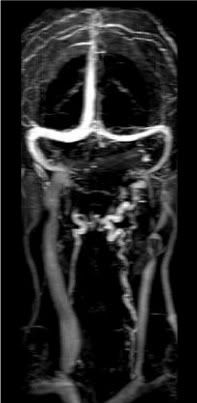Cece wrote:Unfortunately, some people no longer trust these resources because of an early misunderstanding about their views on CCSVI.
I don't think there was a misunderstanding, I think their views were maybe a little too clear!

A patient advocacy issue that I see as important is getting the word out about CCSVI. Here in the US, it has not been on the media or on anyone's radar. It's the opposite sitution from how it is in Canada.
Raising money for CCSVI research also falls into patient advocacy. The CCSVI Walk n Roll in FL was one example.
I think it is a terrible burden for patients to be attempting to become experts and sort through all the CCSVI information and research articles and anecdotes and everything in Dr. Sclafani's thread and at ccsvi.org. If patients were willing to wait, they would not be caught up in this burden, because eventually there will be more of a consensus about this procedure and how it should be done and what the risks are.
I was not willing to wait, I was capable of understanding all that was available to be understood (and there was less then, back in winter of 2010 when I made the decision to go for treatment, than there is now).
You mentioned reading about a clinic that told its patients they would not need the wheelchair when they left. We can all agree that this was unethical and unkind and raising hopes too much. I remember reading an article about a patient who thought, when she restenosed, that the balloons that had been implanted into her veins must have popped. This was a patient who had not been fully informed. As patient advocates, we would have all patients be as fully informed as possible.
I agree with most of the above. I think you and I have very similar views in fact in general, just from different ends of the issue.
One thing however that I cannot agree with is the idea that the views of MS Societies have been correctly interpreted by the general public (those not involved with the societies).
Here in Canada, the public was OUTRAGED when they "learned" that the MS Society had ONLY allocated 200,000 dollars for CCSVI research - they were spreading this "news" like it was fact to their fellow patients! I was surprised to read this - but of course did not believe individual's views until I verified it myself - in fact, these people were way off!
The news bulletin CLEARLY stated that the MS Society was accepting grant proposals for up to 200,000 per study (reasonable given that we don't want one group receiving all the funds), with no maximum number of studies! They set NO CAP! (this is NOT something any other society has done - they usually have a cap - the max they can spend on a particular topic like CCSVI - in THIS case, they did not set a max! Any number of well-designed studies would be funded! This level of financial committment is very rare).
People had clearly misunderstood and were spreading rumors and angering fellow patients. This was unfair to both those patients reading this misinformation, and to those working hard at the MS Society.
There are over two-three dozen misconceptions about the approach of MS Societies on CCSVI. the view that the MS Society gets "paid" by pharma and does whatever they want! Rumor, not fact. The view that MS Societies are refusing to fund CCSVI research! BIG rumor! not fact. They fund CCSVI research. Ask the scientists doing the research now. But do we really expect them to withdraw the funds for other avenues of study? That would be irresponsible!
(I can keep going with examples if you don't believe me). It is their obligation to support any research that could be of promise in MS... however, are people actually reading any of the committments they announce and interpreting it correctly?
As a patient advocate, I need to ask, what if (god-forbid) CCSVI ends up not being the "final answer" (hypothetically of course, let's hope it is). If all patient advocates did for several years is encourage more funds to CCSVI but did not support any other avenue of study, wouldn't that be tragic? The amount of time gone when other discoveries could have been made had we advocated a more balanced approach?
I'm certainly not suggesting that your approach individually is not balanced (you may support many other areas of research in MS as well). But the over-emphasis on only one area of study - only CCSVI - can have severe consequences. I have learned that some people now only want to donate money to CCSVI/MS research. This is exactly what I mean by an unbalanced approach. If I donate to the MS Society, I want it to go to the best studies, with the most promise of finding a cure - I don't care if that cure comes from vascular surgery or toe surgery for that matter

This over-emphasis on one avenue of research that is still in its infancy takes away focus and funds from non-vascular researchers who may have to stop working on the MS question and move on to other fields if they can't afford to run their studies.
We can't be guaranteed that CCSVI will or will not be the final answer. (let's hope it is). Which is why we need lots of research on it. But can we guarantee that those other folks taking another avenue to a cure wouldn't have been able to come up with a treatment/cure if given the chance? No. This is precisely why it makes more sense for MS societies everywhere to take a "diversification of funds" approach (giving money to various areas rather than just one or two) that some patients do not seem to like.



